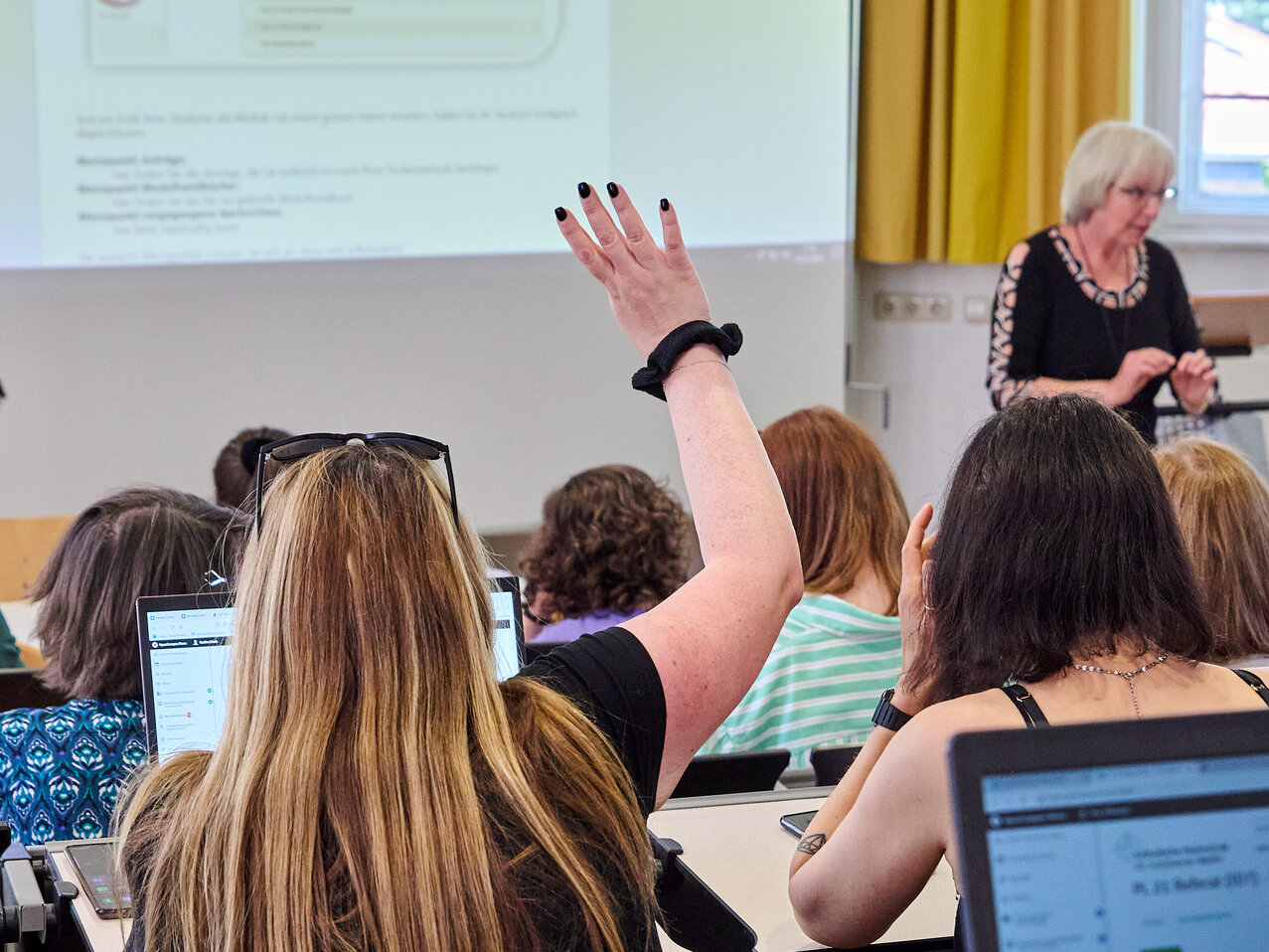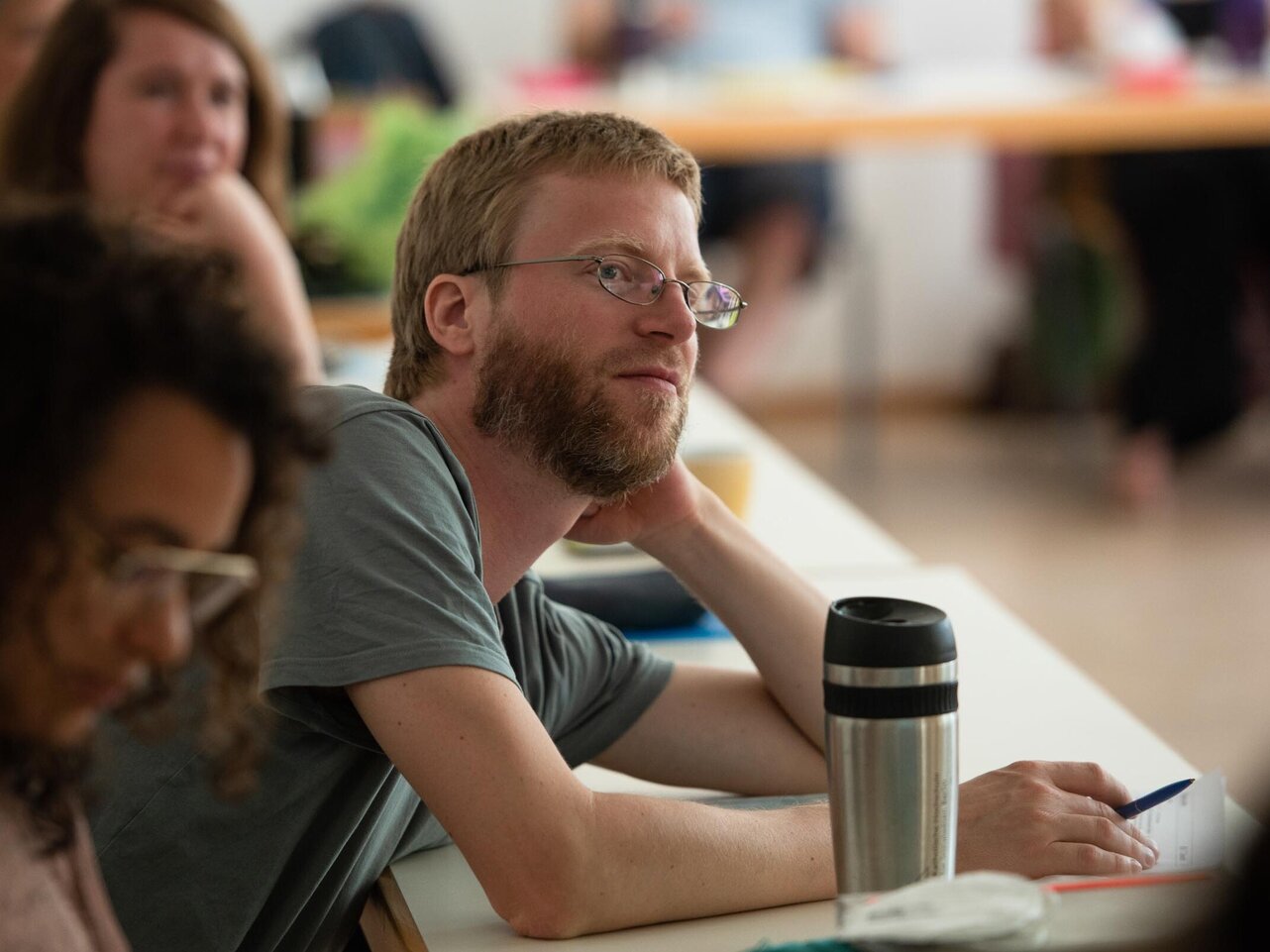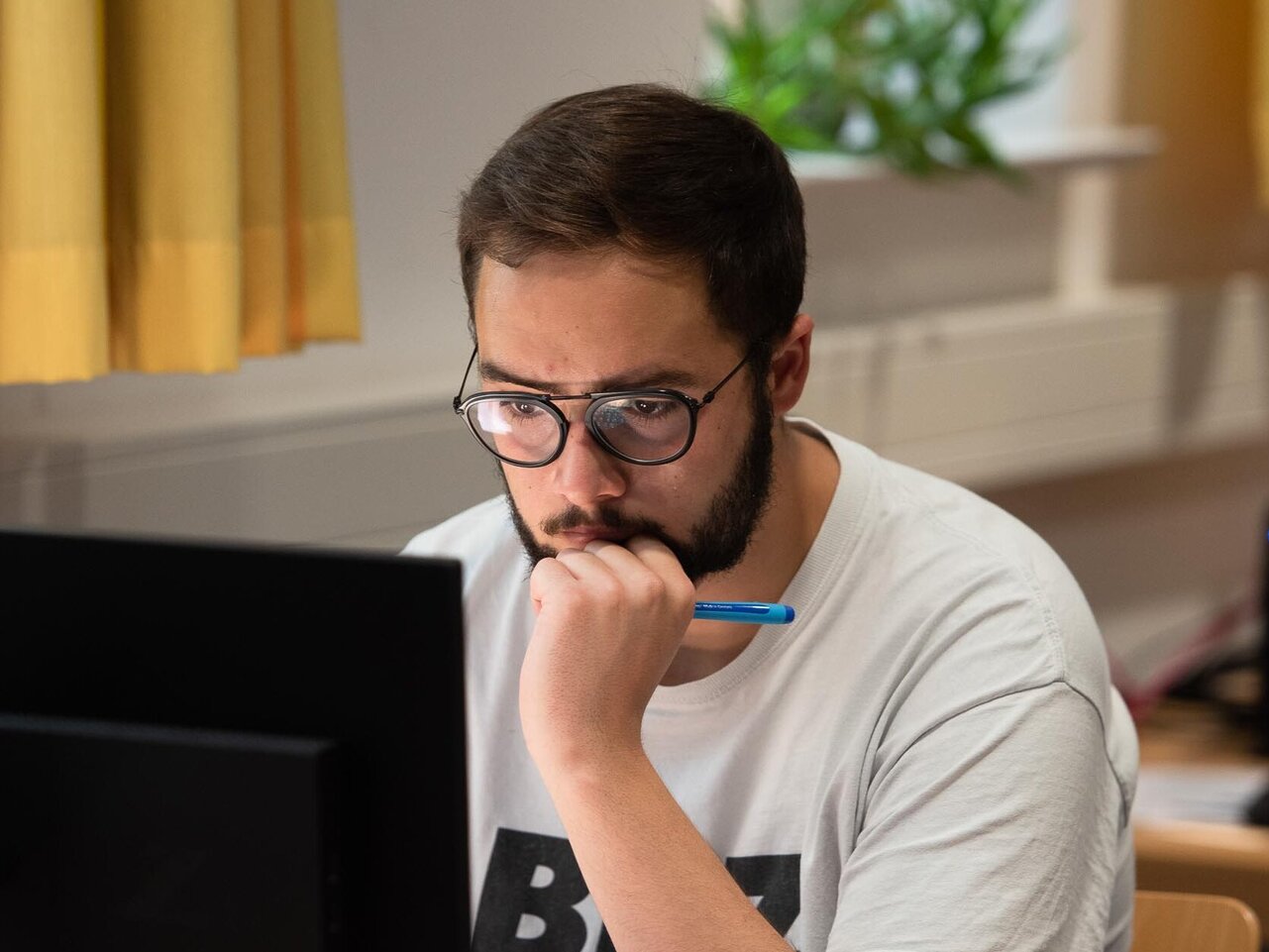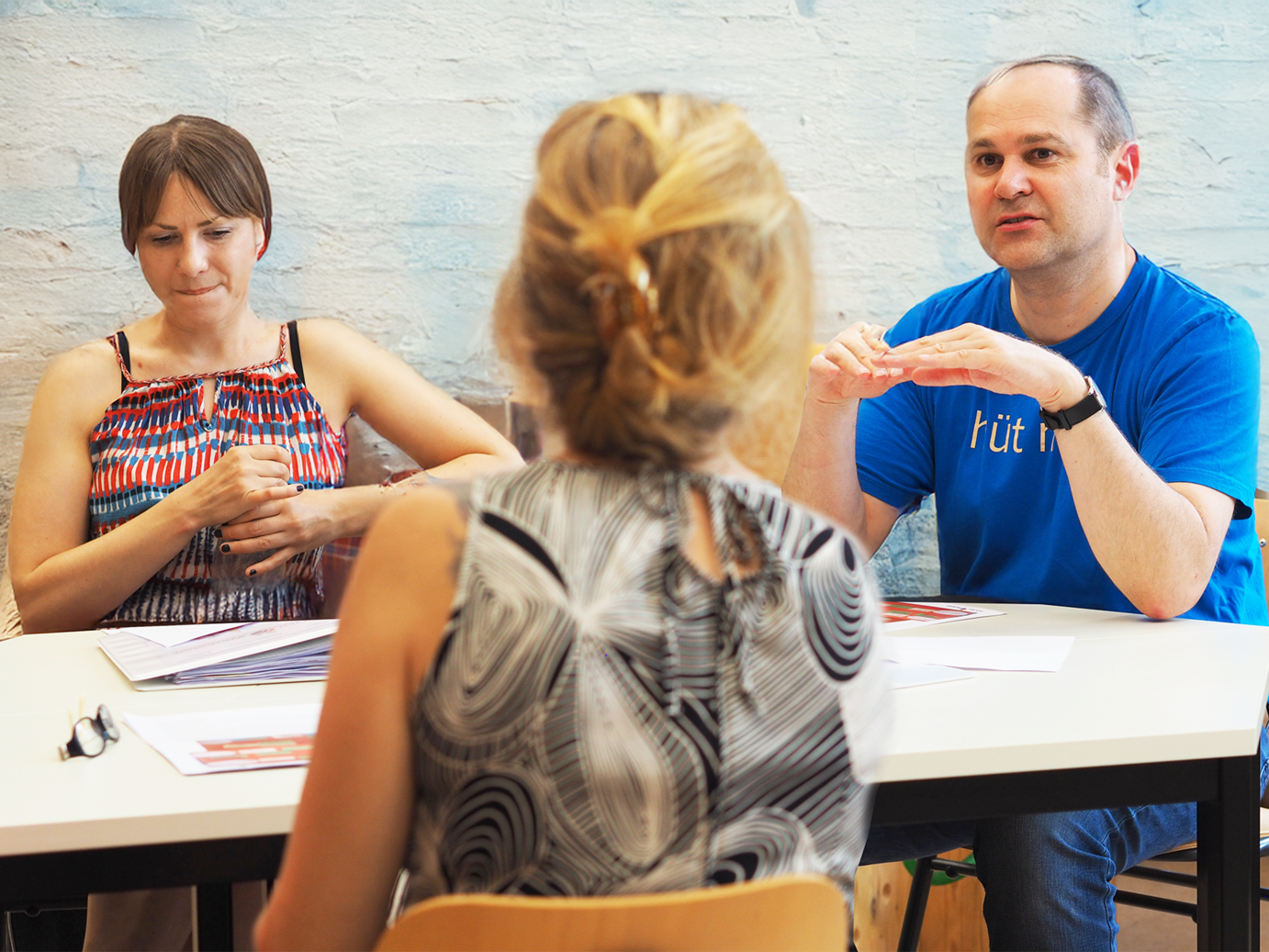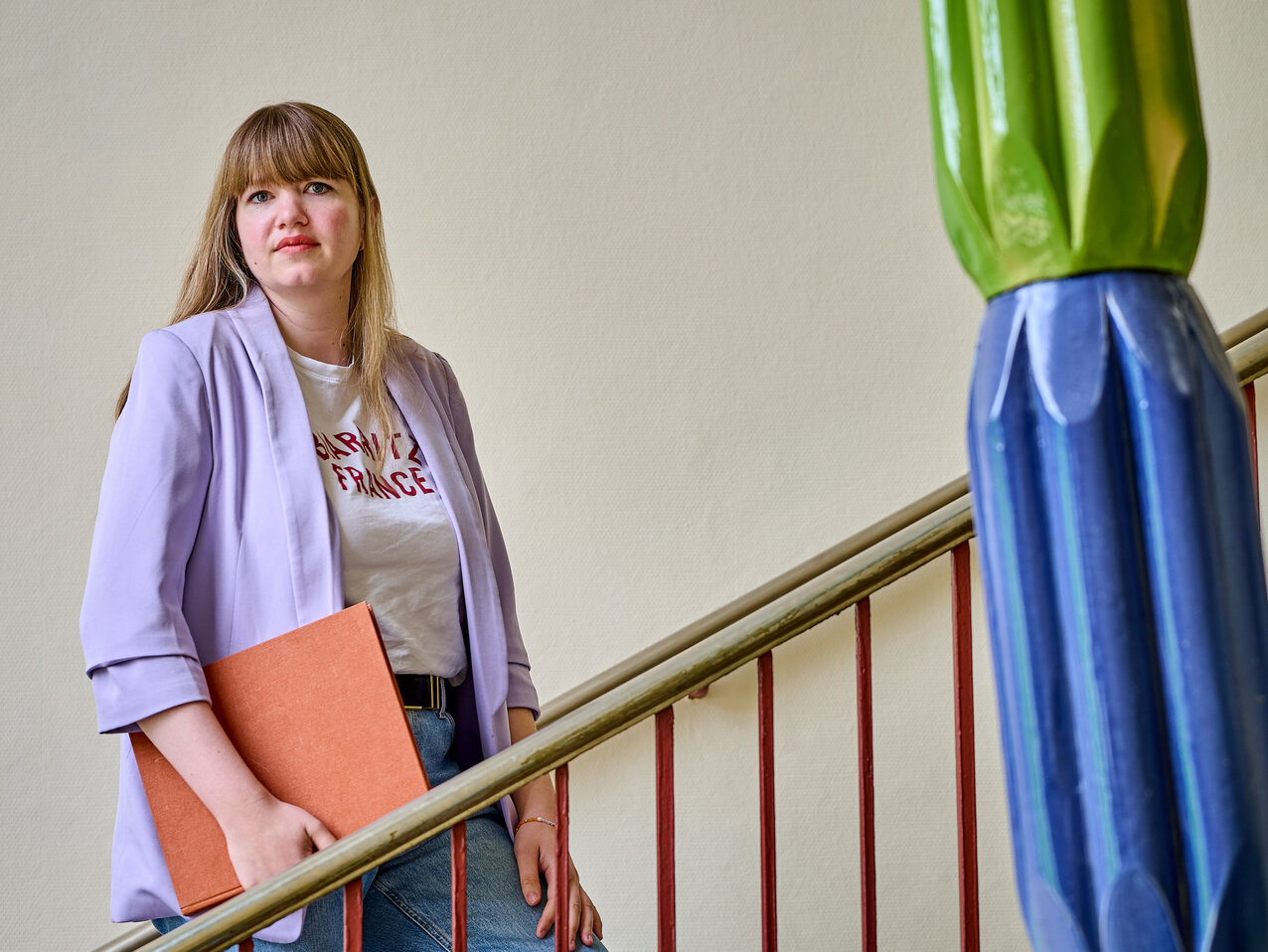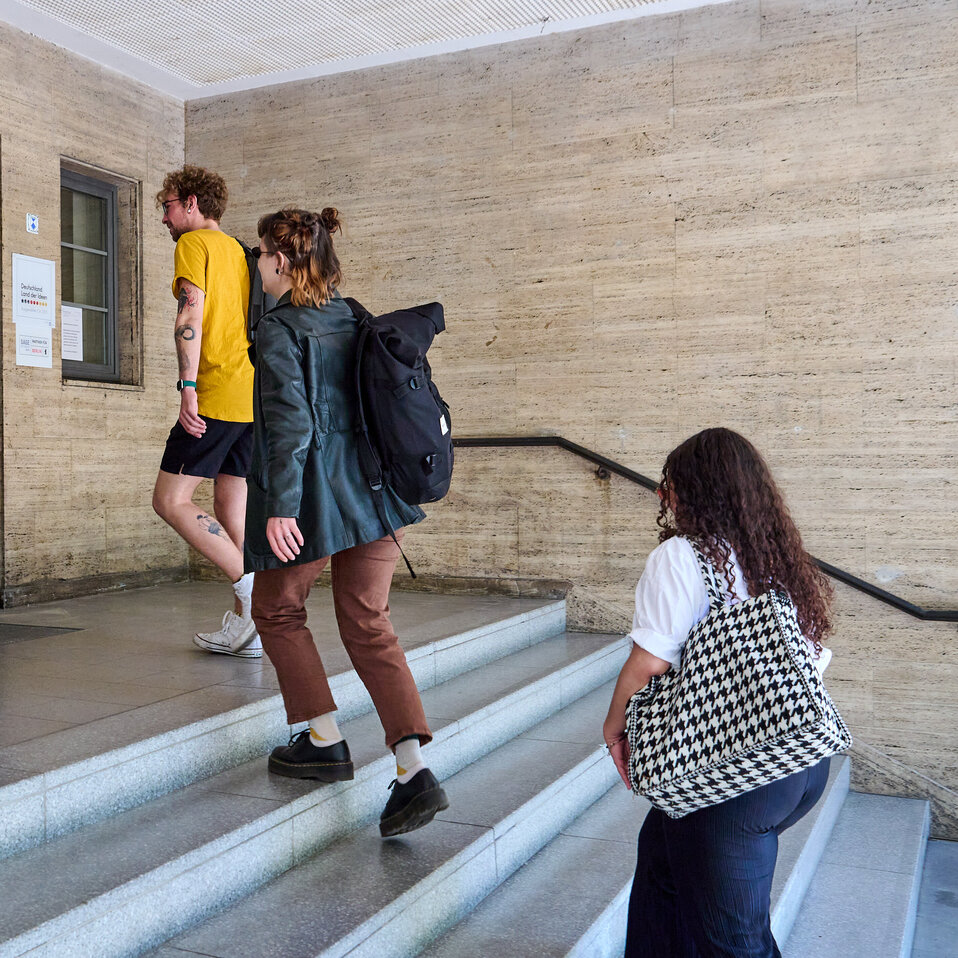Inclusive Curative Education - more inclusion and participation for all
Would you like to help shape a more inclusive society and enable participation for all? Are you passionate about supporting people of all ages in leading a self-determined life? The Bachelor's degree programme in Curative Education will provide you with the necessary specialist knowledge and methodological tools to do so.
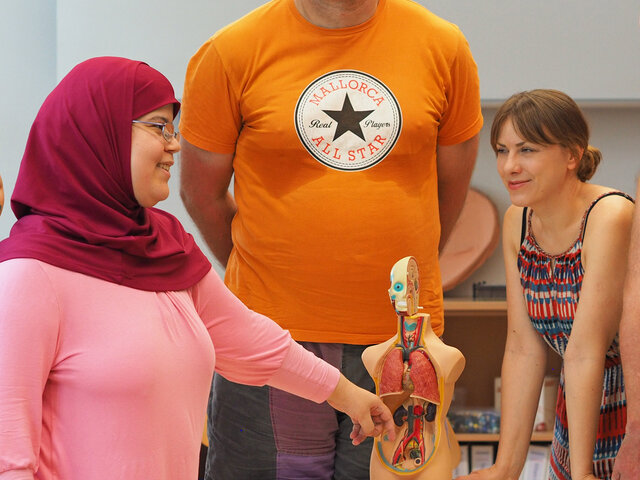
Study Inclusive Curative Education at the KHSB
If you would like to study curative education in Berlin, the KHSB is the right place for you: at our university, you will benefit from a perfect mix of theory and practice. You will acquire the latest scientific knowledge in special education and related sciences.
Equipped with this knowledge, you will gain valuable practical professional experience during your studies. You will learn to adopt a research-based attitude. This will enable you to critically reflect on and further develop both the profession and the academic discipline of curative education. As a curative educator, you will make an important social contribution to inclusive coexistence.
At the same time, the degree offers you a wide range of career prospects in areas with a high demand for specialists. What are you particularly interested in: early intervention for young children or organising educational processes in inclusive schools? Would you like to support adults with disabilities in their living situation, improve the participation of all people in work or support people at the end of their lives?
Curative education is a degree programme in which you set your own specialist focus. On the way to graduation, you will sharpen your personal professional profile. At the KHSB, you will receive the ideal foundation for a targeted career entry or your academic further education.
Here you can get an overview of selected contents of the curative education degree programme over the course of the semester. We show you the study areas that are covered in the course of the modularised study programme. Detailed information on the specific teaching and learning content of each semester can be found in the B.A. Social Work module handbook, which you can find under "Organisational matters" below.
Special features
Interdisciplinary co-operation
People of all ages can develop a need for support. Different forms of impairments, disabilities or chronic illness often require a specific perspective. Curative education support services are therefore an important part of interdisciplinary cooperation.
Curative education expertise
The realisation of inclusion and participation is a current task for society as a whole. Curative educators play an important role in realising this. Corresponding pedagogical and therapeutic skills are the focus of the degree programme.
Added value for our society
The Bachelor's degree programme in Curative Education offers you a forward-looking, interdisciplinary programme that consistently follows the idea of inclusive education in theory and practice. The programme offers curative educators exciting professional fields and meaningful work with real added value for our society.
Expertise
After completing the programme you will have:
- the ability to apply specialist and related scientific principles of curative education with an explicit inclusive orientation in everyday working life,
- the attitude of accepting people with disabilities as individuals in their diversity and supporting them according to their individual needs,
- the competence to organise differentiated professional networks according to the specific living environments and life situations,
- The knowledge to plan and organise work processes in multi-professional teams in a cooperative manner and to support them with sound advice,
- the ability to critically analyse their own professional identity in curative education and inclusive fields of activity as well as the current professional policy debate,
- the ability to reflect on the interplay of specialised knowledge, action, social and personal skills as a necessary prerequisite for one's own professional activities.
Fields of work
- Educational assistance and educational counselling,
- therapeutic living,
- Child day care centres,
- Early intervention and early counselling,
- curative education work at school,
- Housing and support and counselling in everyday life and leisure,
- Health, health care and prevention,
- Family and assisted parenthood,
- Work, vocational training and career development,
- lifelong learning and educational programmes,
- Support until the end of life,
- Jobs in administration,
- Jobs in pedagogical training,
- Jobs in research.
Facilities
- Social paediatric centres,
- including day care centres and schools,
- child and adolescent psychiatric facilities,
- Educational facilities and residential groups for children and young people,
- Workshops for people with disabilities and specialised integration services and vocational integration facilities,
- various residential settings for adults,
- Hospitals, retirement homes and hospices,
- independent practices,
- Specialised participation services,
- Universities,
- Research institutes,
- and many more.
Further qualification
The Bachelor of Arts degree paves the way for further qualification with a postgraduate Master's programme. With one of our Master's programmes, you can specialise further in your field, qualify for management positions and open up the path to a doctorate.
Contact persons
Are you interested in studying with us and have questions about applying, admission requirements, campus life, enrolment or starting your studies?
Get in touch with us! Paula Schwalm, Childhood Education student, and Ahmed Abdulhay, Social Work student, will be happy to help you as part of their student peer-to-peer counselling service.

